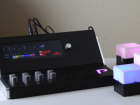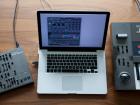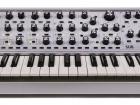5 Free Software Synths for Linux
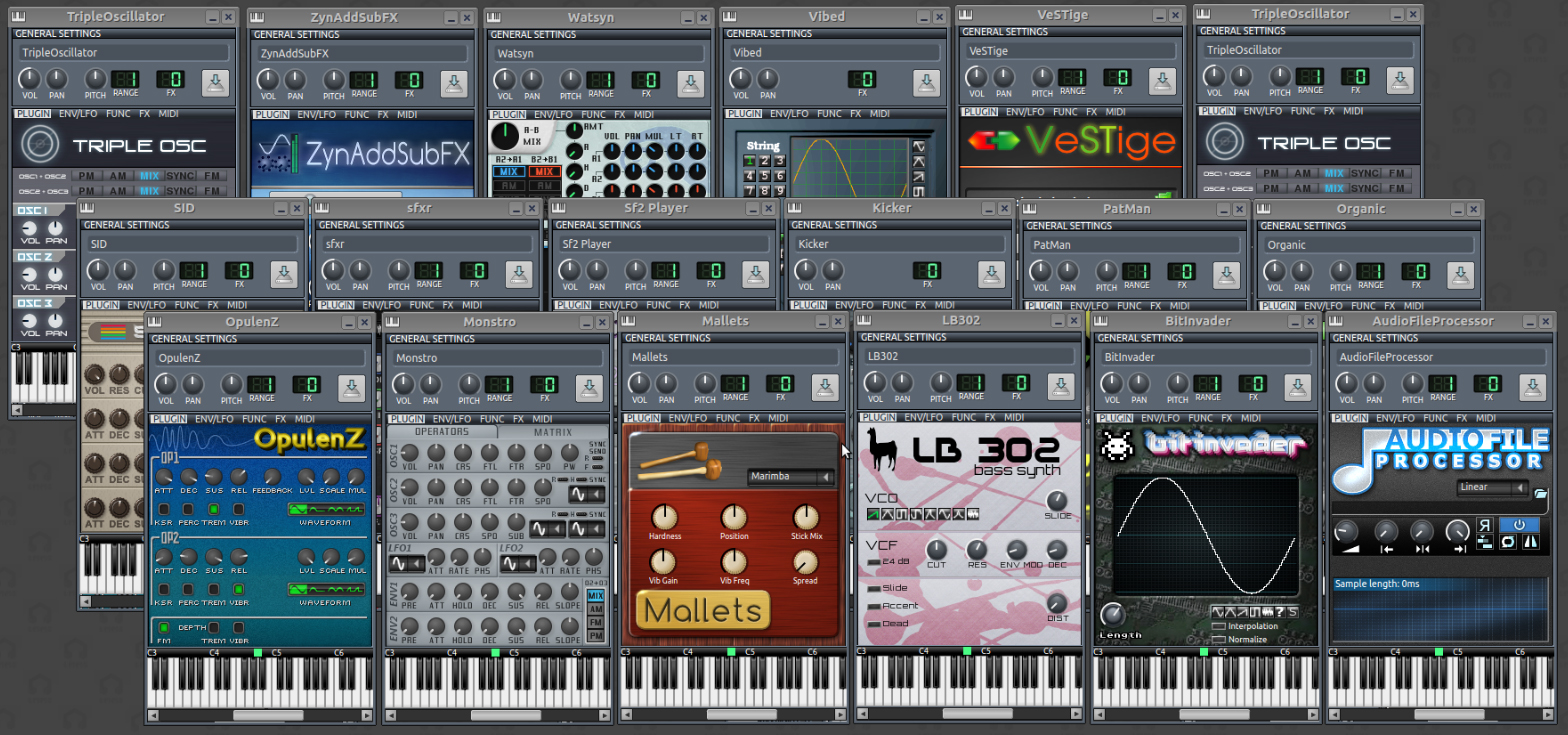
Post date:
Creating digital audio with a software synthesizer isn’t just something that is reserved for musicians that make use of the Microsoft Windows operating system. Over the years some viable alternatives have also been released for those who prefer the Linux operating system. Many of these softsynths are open source to boot, which means it is possible to make full use of all their features without having to dig deep in your wallet in order to afford commercial software. Not all of the synths available for Linux have the same features or ease of use, but here is a small selection of what is on offer.
ZynAddSubFX / ZynAddSubFX 3.0: Zyn-Fusion
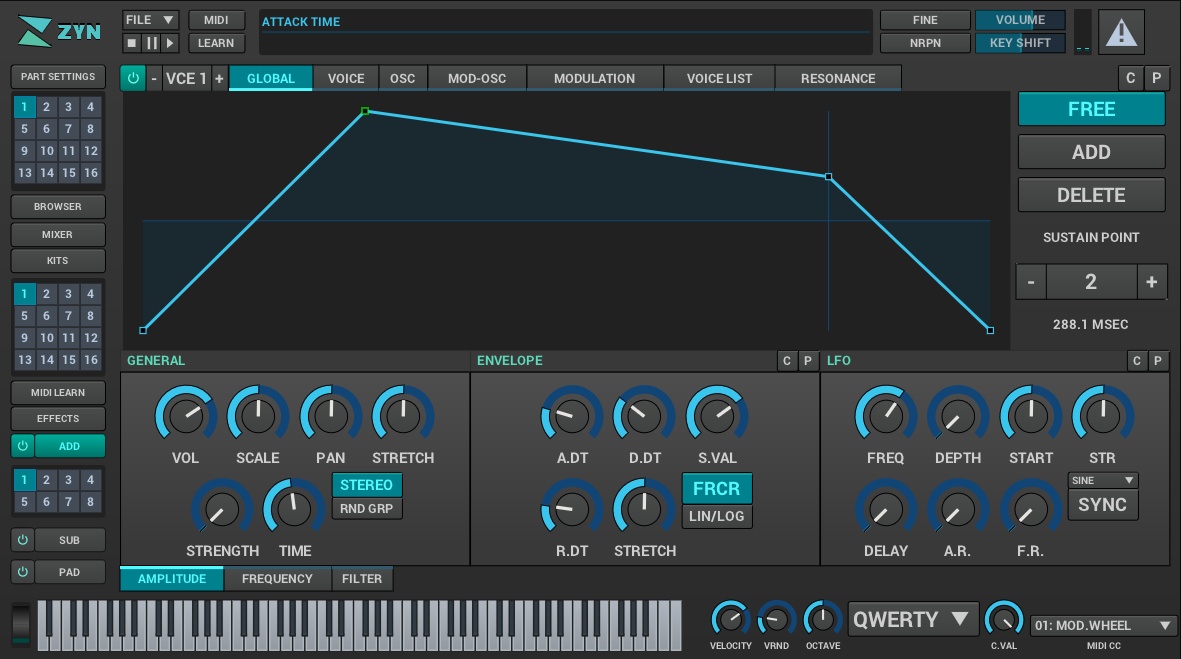
ZynAddSubFX is a software synthesizer for Linux that is also available for Mac OS X and Microsoft Windows. Currently, it is available in two varieties; there is the open source ZynAddSubFX version that has been in development for years as well as ZynAddSubFX 3.0: Zyn-Fusion. ZynAddSubFX has been in development since 2002 and is available free of charge. For a demonstration of what ZynAddSubFX is capable of, check out the UNFA album, Static, which was released in 2013 and made entirely with this software synthesizer (https://www.jamendo.com/album/128977/static). Zyn-Fusion is a paid version of the program that addresses one of the major issues of the free version, the complicated user interface. A demo version of the Zyn-Fusion is available for testing purposes, but after running for 10 minutes it becomes silent (http://zynaddsubfx.sourceforge.net/demo.html).
Helm
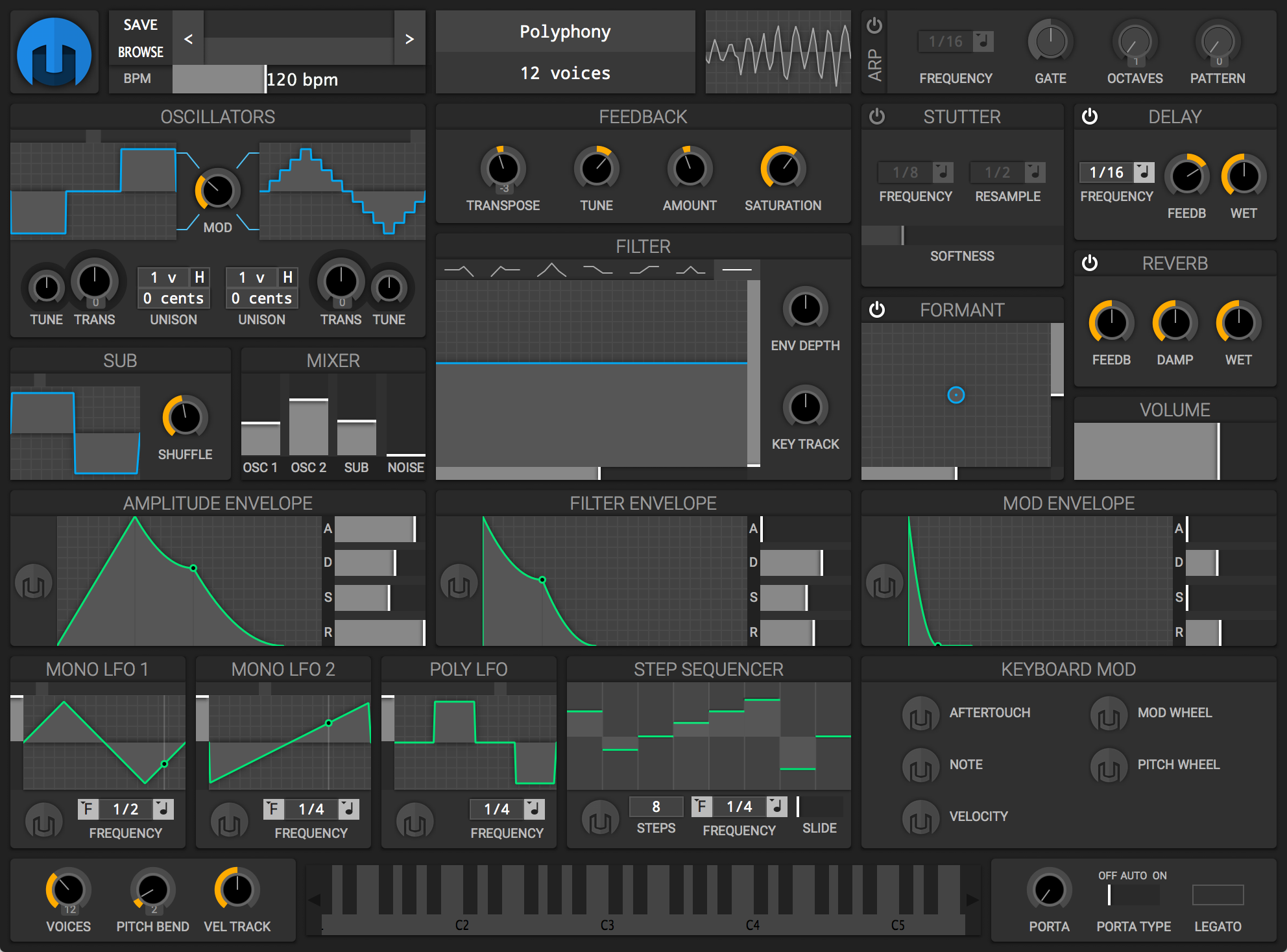
Helm is another software synthesizer that is available for multiple platforms, including Linux, and can be run as a standalone instrument or LV2 plugin. It was originally known as “Twytch!” but was re-branded because it sounded so similar to the “Twitch” video streaming service. The author of Helm is distributing it as “pay what you want” which means that if you find it useful you can pay as much as you want or can afford, including paying nothing. It is available in 32-bit as well as 64-bit versions. One of the best features of Helm is the graphical user interface, which many users consider to be amongst the best available among all the freeware releases. Here’s a rough demo of the sound produced by Helm (https://www.youtube.com/watch?v=MXHCZlo1zNg).
Amsynth
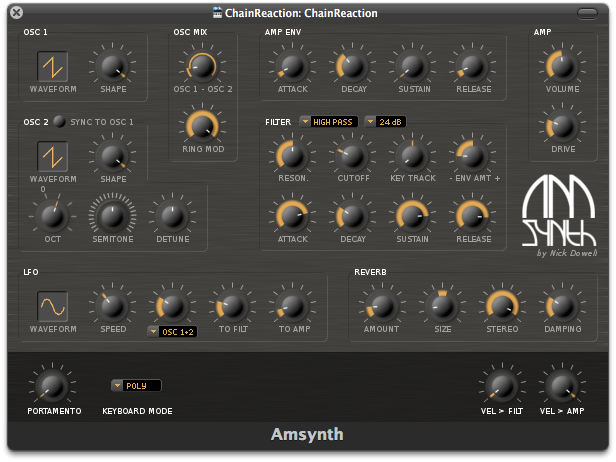
For an open source Linux software synthesizer that makes use of classic subtractive synthesizer topology there is amSynth Analog Modeling Synthesizer). This software synth is ideal for users who want to recreate the style of classic 70’s analog synthesizers, such as the Roland Juno-60 or Moog Minimoog. The features included with amsynth range from distortion and reverb to dual ADSR envelope generators, dual oscillators and mono, poly as well as legato keyboard modes. For an idea of the sounds possible with amsynth, here’s a demo that was created with various presets (https://soundcloud.com/briandc/throughoutthefall-01).
LMMS
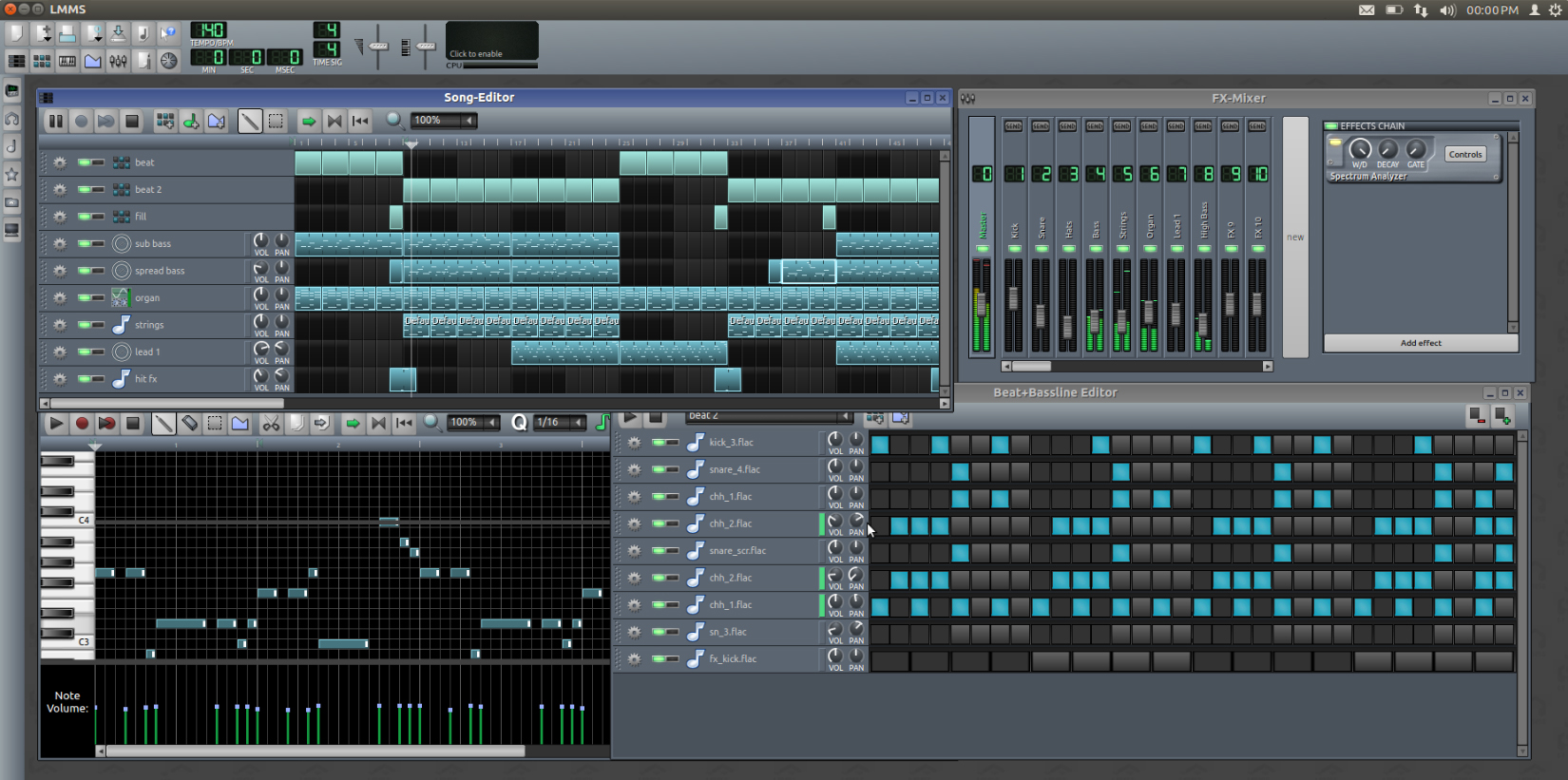
LMMS, which used to be known as Linux MultiMedia Studio before becoming available for multiple operating systems, is not a software synth, but a complete digital audio workstation. The great thing about LMMS is that it comes bundled with plenty of plugins, samples and presets, that make it easy to start producing your own music on your computer. In addition to its song editor, piano roll, FX mixer and more, LMMS also has a range of synthesizers. These include the ZynAddSubFX presets, a monophonic imitation of Roland TB-303, a 2-operator FM synth and much more. Anyone in search of a full featured DAW with a good user interface and extensive documentation should definitely try out LMMS. LMMS is also completely free to download and use, so there is no excuse to miss out on what it has to offer.
Bristol
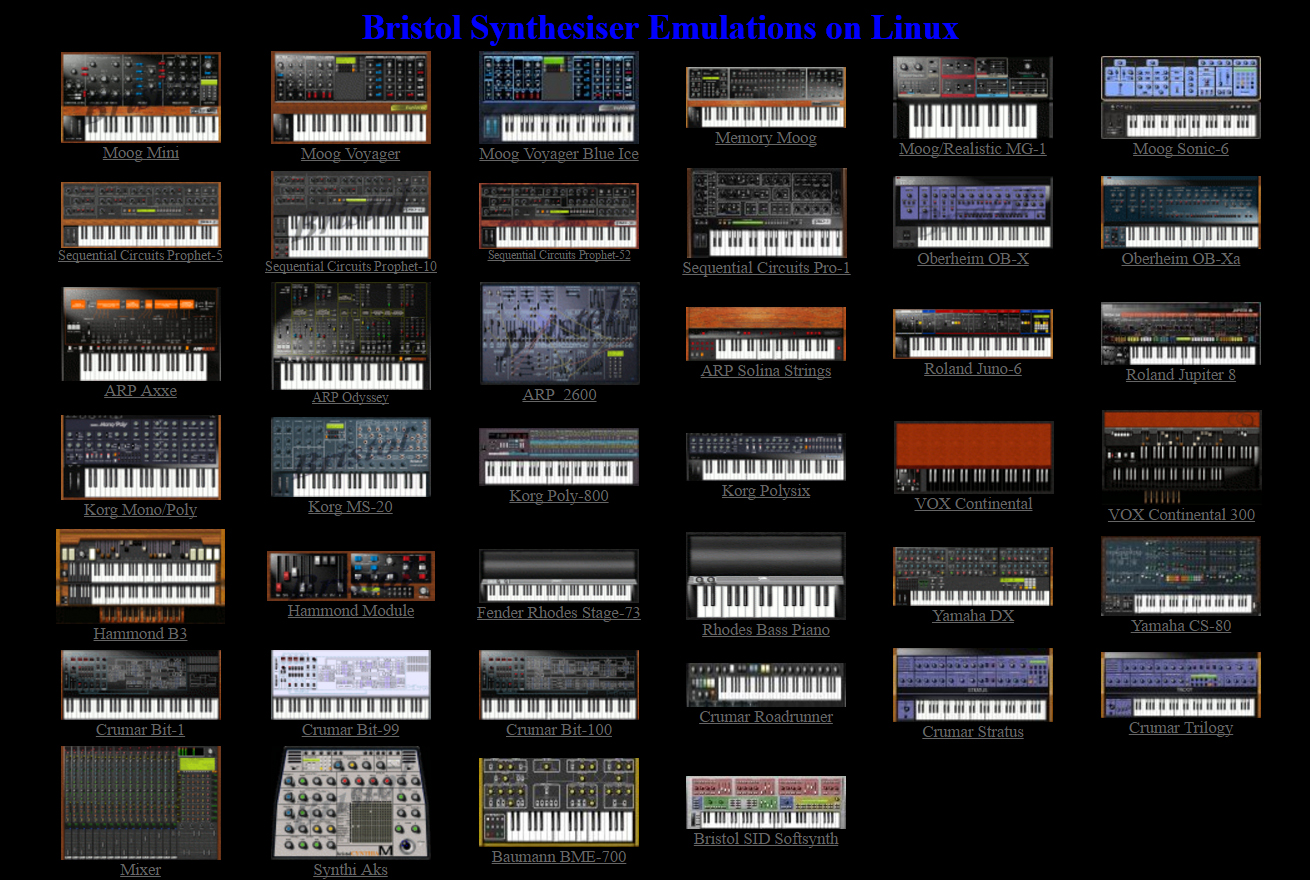
Musicians who want to emulate vintage synthesizers, and plenty of them, will appreciate the variety on offer with Bristol by Nick Copeland. It is able to emulate everything from the Moog Mini, Moog Voyager, and ARP Axxe to the Juno-6, Jupiter-8, Crumar Stratus and many, many others. In addition, the synthesizers can be run individually or at the same time on multiple MIDI channels. Bristol consists of both the engine along with “Brighton,” which is the GUI library with all the emulations. Bristol is free to use and only available for the Linux platform.

